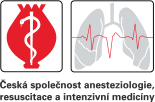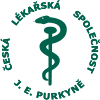Anest. intenziv. Med. 2010;21(3):141-145
N-terminal pro-Brain natriuretic peptide (NT-proBNP) in acute brain disease: Elevated serum levels without sodium imbalanceIntensive Care Medicine - Original Paper
- 1 Neurocentrum, Krajská nemocnice, Liberec
- 2 Ústavu klinické biochemie a laboratorní diagnostiky Všeobecné fakultní nemocnice a 1. lékařské fakulty Univerzity Karlovy, Praha
Objective:
B-type natriuretic peptide is a member of the peptide family which increases urine and sodium output in the kidneys and causes vasodilatation in the vessels. In acute brain disease it is connected with hyponatraemia and natriuresis, forming the cerebral salt wasting syndrome (CSWS). The aim of this study was to evaluate serum NT-proBNP and its relationship to sodium and water metabolism parameters in patients with acute brain disease in the absence of CSWS.
Design:
Retrospective study.
Setting:
Neurological-neurosurgical intensive care unit, Regional Hospital.
Material and method:
We observed NT-proBNP values in 18 patients (9 women, 9 men, mean Glasgow Coma Scale 14 ± 1) with acute brain disease (subarachnoid haemorrhage 9, intracerebral haemorrhage 2, tumour 5, other 2) with normal renal parameters and New York Heart Association (NYHA) classification I. Serum sodium concentration and osmolality were measured on the day of taking the NT-proBNP sample (day 1) and 24 hours later (day 2), further parameters - urine output, urinary loss of sodium, fluid and sodium intake, were observed for a period of 24 hours after the NT-proBNP measurement.
Results:
Serum levels of NT- proBNP (mean 37.4 ± 29.5 pmol/l, 316.8 ± 250.3 pg/ml) were statistically significantly higher than the normal value (14.8 pmol/l, 125 pg/ml, p = 0.005), while no significant changes were observed in the levels between day 1 and 2 of either serum sodium (p = 0.799) or serum osmolality (p = 0.388). Furthermore, there was no proven significant correlation between NT-proBNP and the measured parameters.
Conclusion:
This study showed a significant elevation of NT-proBNP in patients with acute brain disease that was not accompanied by the development of CSWS.
Keywords: B-type natriuretic peptide; NT-proBNP; hyponatraemia; cerebral salt wasting syndrome
Published: June 1, 2010 Show citation
References
- Ruskoaho, H. et al. Mechanisms of mechanical load-induced atrial natriuretic peptide secretion: role of endothelin, nitric oxide, and angiotensin II. J. Mol. Med., 1997, 75, p. 876-885.
 Go to original source...
Go to original source...  Go to PubMed...
Go to PubMed... - Hall, C. Essential biochemistry and physiology of (NT-pro)BNP. Eur. J. Heart Fail, 2004, 6, p. 257-260.
 Go to original source...
Go to original source...  Go to PubMed...
Go to PubMed... - Vanderheyden, M. et al. Brain and other natriuretic peptides: molecular aspects. Eur. J. Heart Fail., 2004, 6, p. 261-268.
 Go to original source...
Go to original source...  Go to PubMed...
Go to PubMed... - de Bold, A. J. et al. A rapid and potent natriuretic response to intravenous injection of atrial myocardial extract in rats. Life Sci., 1981, 28, p. 89-94.
 Go to original source...
Go to original source...  Go to PubMed...
Go to PubMed... - Sudoh, T. et al. A new natriuretic peptide in porcine brain. Nature, 1988, 332, p. 78-81.
 Go to original source...
Go to original source...  Go to PubMed...
Go to PubMed... - Kazda, A. et al. Akutní onemocnění mozku - poruchy vodního a natriového hospodářství, natriuretické peptidy. Klin. Biochem. Metab., 2003, 11, s. 74-82.
- Strohle, A. et al. Anxiolytic activity of atrial natriuretic peptide in patients with panic disorder. Am. J. Psychiatry, 2001, 158, p. 1514-1516.
 Go to original source...
Go to original source...  Go to PubMed...
Go to PubMed... - Hobbs, F. D. et al. The diagnosis of heart failure in European primary care: The Improvement Programme survey of perception and practice. Eur. J. Heart Fail., 2005, 7, p. 768-779.
 Go to original source...
Go to original source...  Go to PubMed...
Go to PubMed... - Kirk, V. et al. N-terminal proBNP and mortality in hospitalised patients with heart failure and preserved vs. reduced systolic function: data from the prospective Copenhagen Hospital Heart Failure Study (CHHF). Eur. J. Heart. Fail., 2004, 6, p. 335-341.
 Go to original source...
Go to original source...  Go to PubMed...
Go to PubMed... - Wijdicks, E. F. et al. Atrial natriuretic factor and salt wasting after aneurysmal subarachnoid hemorrhage. Stroke, 1991, 22, p. 1519-1524.
 Go to original source...
Go to original source...  Go to PubMed...
Go to PubMed... - Berendes, E. et al. Secretion of brain natriuretic peptide in patients with aneurysmal subarachnoid haemorrhage. Lancet, 1997, 349, p. 245-249.
 Go to original source...
Go to original source...  Go to PubMed...
Go to PubMed... - Sviri, G. E. et al. Brain natriuretic peptide and cerebral vasospasm in subarachnoid hemorrhage: Clinical and TCD correlations. Stroke, 2000, 31, p. 118-122.
 Go to original source...
Go to original source...  Go to PubMed...
Go to PubMed... - McGirt, M. J. et al. Correlation of serum brain natriuretic peptide with hyponatremia and delayed ischemic neurological deficits after subarachnoid hemorrhage. Neurosurgery, 2004, 54, p. 1369-1373.
 Go to original source...
Go to original source...  Go to PubMed...
Go to PubMed... - Sviri, G. E. et al. Alteration in brain natriuretic peptide (BNP) plasma concentration following severe traumatic brain injury. Acta Neurochir., 2006, 148, p. 529-533.
 Go to original source...
Go to original source...  Go to PubMed...
Go to PubMed... - Jensen, J. K. et al. N-terminal pro-brain natriuretic peptide after acute ischemic stroke. Cerebrovasc. Dis., 2006, 22, p. 439-444.
 Go to original source...
Go to original source...  Go to PubMed...
Go to PubMed...





